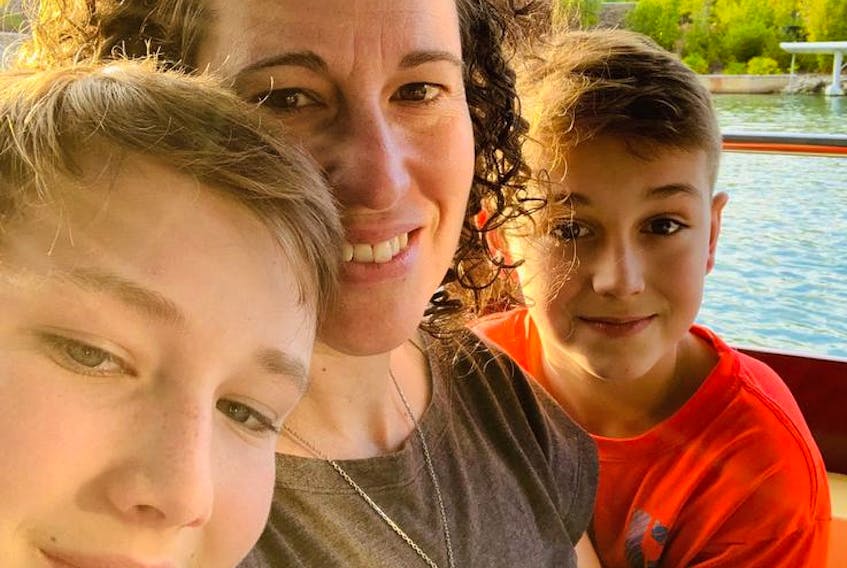When Lisa Ali’s sons became sick with body pain and swollen joints, she had no idea what was wrong.
It turned out the boys, then aged 12 and nine, had developed Lyme disease. Their illness led their mom to found AtlanTick Repellent Products, a business focused on developing natural tick repellents.
Now, Ali has received a $100,000 grant from the Atlantic Canada Opportunities Agency. The money will go toward completing toxicology tests necessary for registering Ali’s most potent repellent with Health Canada’s Pest Management Regulatory Agency.
The funding follows 18 months during which Ali has started selling products online and in retail outlets. She has also been testing and refining her repellents at Acadia University. She said she hopes to become the first to register a scientifically proven natural tick spray in Canada.
“The boys had no bulls-eye rash or typical Lyme flu symptoms,” Ali said in an interview, recalling the early days of her sons’ illness.
“Things got so bad that my oldest couldn’t walk for a period of time. I was terrified and still had no diagnosis.”
Her son, Darian, was sent to a child rheumatologist. Ali asked the doctor to test for Lyme and to immediately put her son on antibiotics as a precaution.
“I felt sick to my stomach. Any parent can relate when a child is that debilitated.”
When Lyme was confirmed after eight long months, Ali felt guilty for the delay in treatment—a neighbour had warned her about the prevalence of ticks and Lyme when the family moved to Mahone Bay several years earlier, but Ali had forgotten.
Her sons’ illness incentivized her to act. She started doing research online and found that various essential oils make good tick repellents. She devised some formulas and took them to Acadia University's biologist Nicoletta Faraone for testing and refinement.
Ali describes the experience of seeing ticks in a petri dish.
“They looked dead, but Dr. Faraone breathed on them and their little legs popped up because of the carbon dioxide in her breath. They started to crawl about to find out where it came from.”
Tests proved one particular formula repelled 80 to 85 per cent of the ticks in contact with it. That repellent has consequently been labelled 80 to 85 per cent effective. This outdoor spray is sold as a cosmetic and does not need regulatory approval. Ali also sells other products such as a lava stone bracelet and a pendant, which absorb the tick-repelling spray.
She said another formula proved to be 97.5 per cent effective, and that one is going through the regulatory process with Health Canada.
Gaining regulatory approval is a long, expensive undertaking but Ali isn’t new to entrepreneurship. She began her first venture in 1999 when she began selling her own digital artwork, which explored her childhood growing up Metis in Labrador. Later, she got into property investing and development.
With her latest venture growing, Ali has recently gained a business partner, Nancy Thompson, who also grew up in Labrador and now lives in British Columbia. Thompson has had Lyme disease for 12 years. The partners’ potential market is vast as different species of tick and different types of tick-borne illnesses are becoming more common. In Atlantic Canada, deer ticks — also known as blacklegged ticks — cause Lyme disease and are of major concern.
Ali said recent tests have shown that her son Darian is now free of Lyme. Her younger boy, Lucas, will soon be retested.
She said her boys’ experience has left her nervous — after all, a child’s muscle or joint ache can be a symptom of Lyme or just a growing pain. But she hopes her products make a difference.
“We are dedicated to impacting this problem and providing safe options to protect the people and pets (it is safe for dogs) we all love,” she said.
Carol Moreira is a principal of Entrevestor, which provides news and data on Atlantic Canadian startups.
Disclosure: ACOA is a client of Entrevestor.
RELATED:








